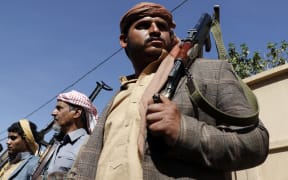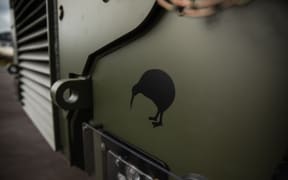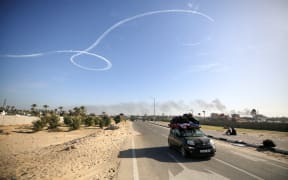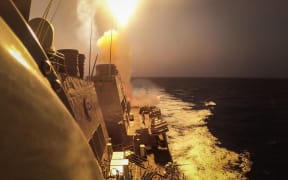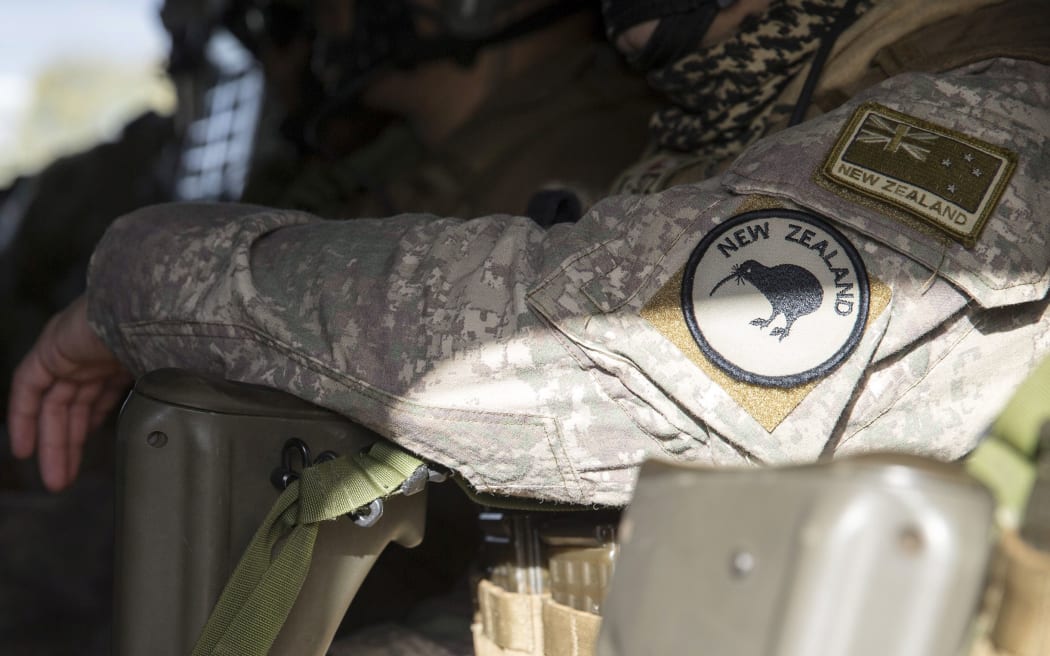
The coalition government's decision to deploy troops to the Middle East is a "break from recent traditions", says Labour foreign affairs spokesperson David Parker. (file image) Photo: NZDF / Supplied
The Labour Party is condemning the coalition government's deployment of Defence Force troops to the Middle East, saying it has "shades of Iraq".
Following a request from the United States, New Zealand is sending six personnel to the region to support future military action against Houthi targets.
Iran-backed Houthi rebels have been attacking ships in the Red Sea, which they say are linked to Israel, since the start of the Israel-Gaza conflict. In response, US and British forces have been carrying out strikes at different locations in Yemen, with support from Australia, Bahrain, Canada and the Netherlands, according to a joint statement signed by the six countries.
Prime Minister Christopher Luxon has described the Houthi strikes as "illegal, unacceptable and profoundly destabilising".
"This deployment, as part of an international coalition, is a continuation of New Zealand's long history of defending freedom of navigation both in the Middle East and closer to home," Luxon said.
"Nearly 15 percent of global trade goes through the Red Sea, and the Houthi attacks are driving costs higher for New Zealanders and causing delays to shipments."
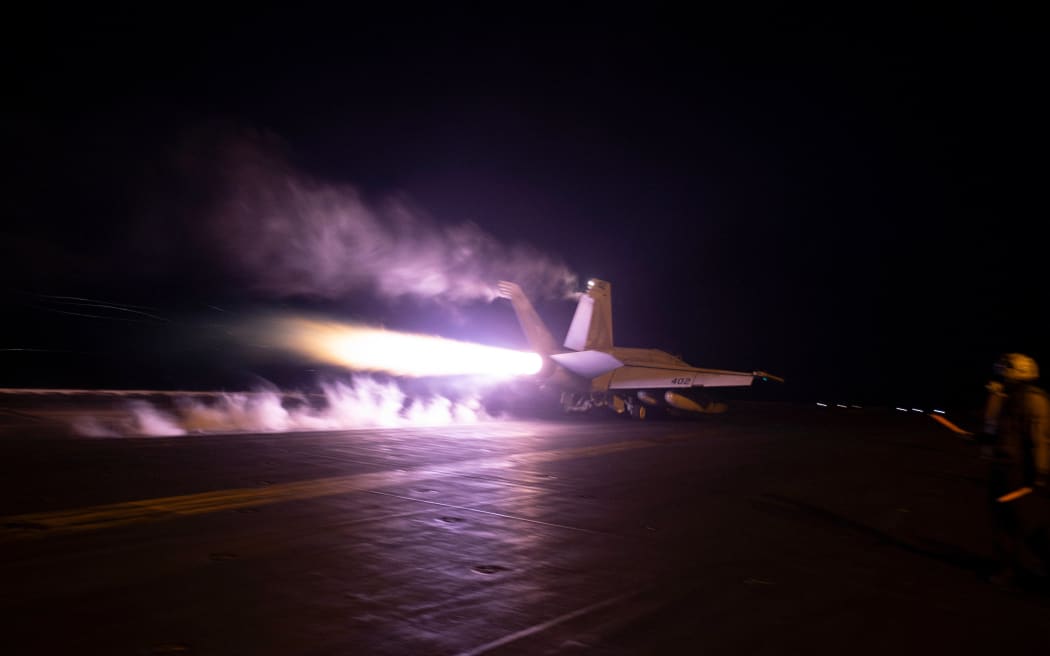
US Central Command forces alongside UK Armed Forces, and with the support from Australia, Bahrain, Canada, and the Netherlands, conduct strikes on Houthi targets in Yemen on 22 January, 2024. Photo: AFP / HANDOUT/ CENTCOM
Labour foreign affairs spokesperson David Parker made clear his party's opposition to the deployment.
"We don't think we should become embroiled in that conflict ... which is part of a longer term civil war in Yemen and we think that New Zealand should stay out of this, there's no UN resolution in favour of it ... we don't think we should get involved in a conflict in the Middle East."
The Houthis, who control most of Yemen's populated areas, have been fighting a civil war since 2014 against Yemen's government, which had the backing of a coalition of Arab countries.By the start of 2022, the war had caused an estimated 377,000 deaths and displaced four million people, according to the UN.
New Zealand's two major political parties have long taken a bipartisan approach to foreign affairs and Labour was briefed on the deployment by the Office of the Minister of Foreign Affairs before it was announced publicly.
"We let them know it has shades of Iraq," Parker told RNZ.
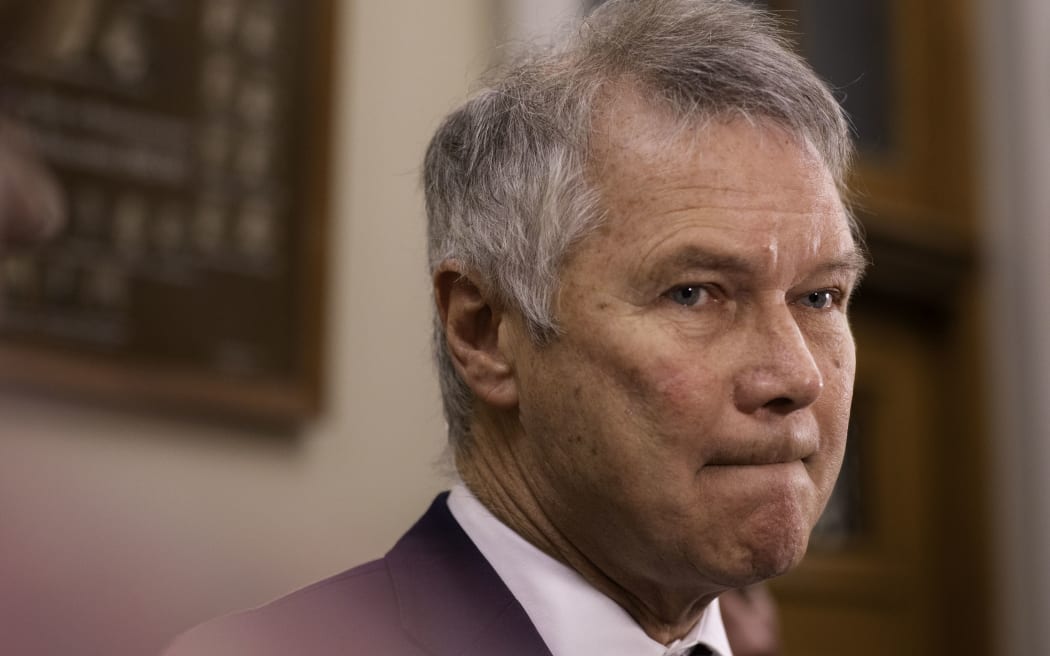
Labour foreign affairs spokesperson David Parker Photo: RNZ / Angus Dreaver
In the early 2000s, then prime minister Helen Clark resisted pressure from the US to join its invasion of Iraq, which had not been sanctioned by the United Nations.
"This government doesn't trade the lives of young New Zealanders for a war it doesn't believe in," Clark said at the time.
She did, however, agree to send troops to help with reconstruction efforts in September 2003.
The coalition government's decision to deploy troops to the Middle East was a "break from recent traditions," Parker said.
"New Zealand, despite all the pressure from the United States, Australia, and Great Britain at the time, stayed out of the conflict in Iraq, when Iraq was invaded ... we think history shows that was a very wise decision of the then Labour government.
"This is not identical, but it is similar and we don't think it will resolve the problems in the Middle East, which stem from civil war, other conflicts in the region, including in Gaza."
When asked by RNZ if the deployment could set a precedent, Parker replied, "it's easier to get into these things than get out of them".
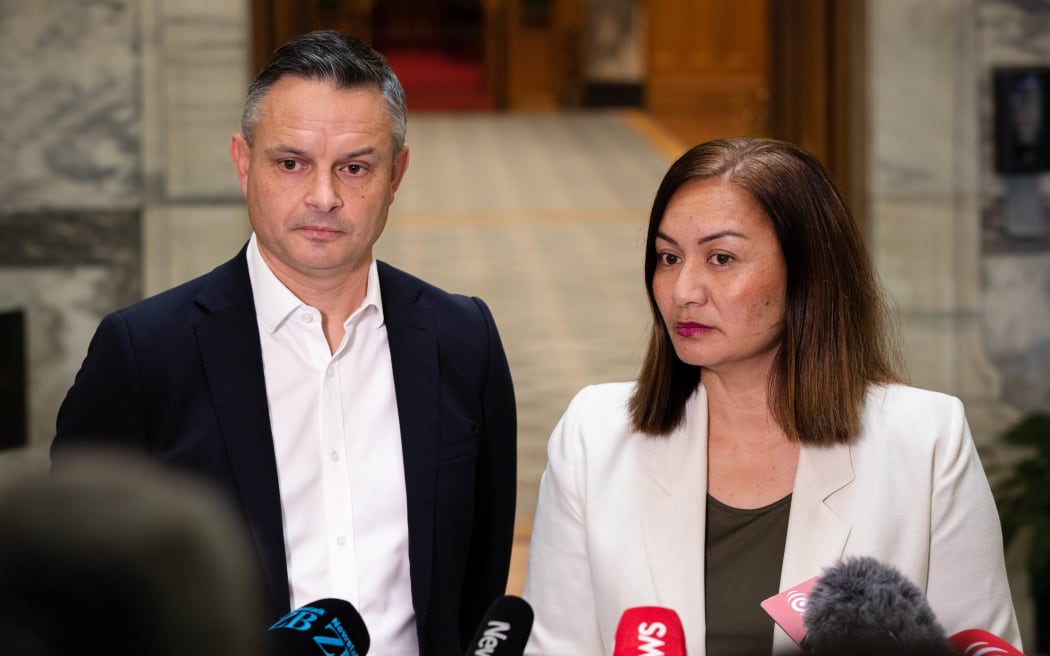
Green Party co-leaders Marama Davidson and James Shaw Photo: RNZ/ Angus Dreaver
The Green Party's co-leaders have also expressed their unhappiness with the deployment, describing it as "deeply disturbing".
In a statement, Marama Davidson and James Shaw said they were "horrified at this government's decision to further inflame tensions in the Middle East".
"The international community has an obligation to protect peace and human rights. Right now, what we are witnessing in the Middle East is a regional power play between different state and non-state groups. This decision is only likely to inflame tensions
"When the US asks us to support their military operation, questions need to be asked about the strategic interests the US is prioritising and whether these align with the clear support of the New Zealand people for our Defence Force to be focused on peacebuilding and enduring justice."
Davidson and Shaw indicated they would call for an urgent debate on the deployment when Parliament resumes next week.
Defence experts warn deployment could be seen as backing Israel in the Gaza conflict
Security analyst Paul Buchanan told RNZ the US-requested deployment could be interpreted as New Zealand "planting its flag firmly on the side of the Western backers of Israel".
The United States has backed Israel during the Gaza conflict, arguing Israel has the right to defend itself following Hamas' October attack.
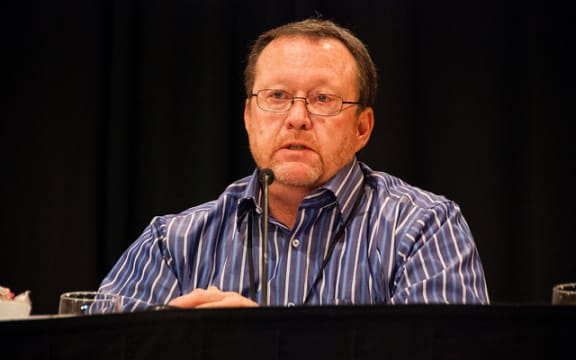
Security analyst Paul Buchanan Photo: Supplied/ 36th Parallel Assessments
"We've tried to play a neutral role, historically, and since this war started on October the seventh, and so we've shifted position by deploying these troops," Buchanan said.
"It was one thing to join the statement condemning the attacks on shipping and leaving it at that, but now with the deployment of even a small unit ... we're clearly announcing to the world that we're on the side of the West."
New Zealand's deployment could cause reputational damage, Buchanan said.
"We've exposed at least these soldiers to risk and then to New Zealand, perhaps a measure of reputational risk, at least in those parts of the worlds that are opposed to Israel's actions in Gaza."
Otago University international relations professor Robert Patman also said the deployment could be interpreted as New Zealand shifting its weight behind the United States.
It contradicts New Zealand's voting record in the UN general assembly, Patman said, having twice supported calls for an immediate humanitarian truce or ceasefire in Gaza.
"There is a bit of a tension here. We're saying there must be a ceasefire, and yet we're ... contributing to support a country which has exercised the veto three times in the UN Security Council," Patman said.
"There seems to be a tension between our announcement today and our voting record [at the United Nations] and it may be construed, I think perhaps unfairly, as that we have basically decided to support the United States' position in relation to Gaza. That's how it could look."
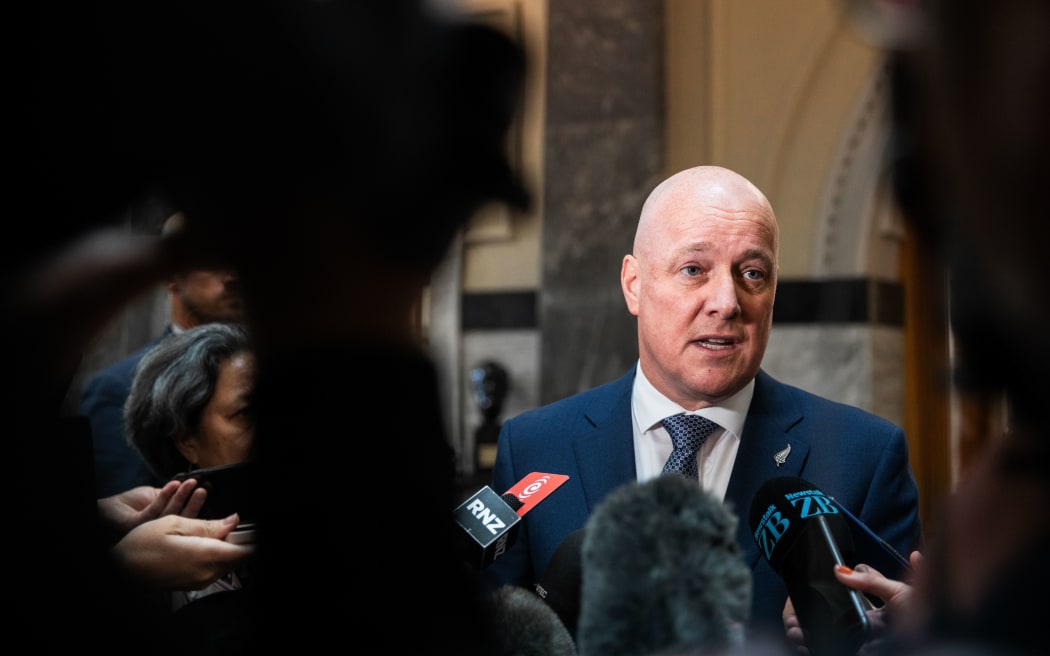
File photo. Prime Minister Christopher Luxon says freedom of navigation is a long-held belief of New Zealand. Photo: RNZ / Samuel Rillstone
Prime Minister Christopher Luxon was defensive when asked if the Middle East deployment was an extension of the Israel-Gaza conflict in Tuesday's post-Cabinet media conference.
"I think you are absolutely wrong to conflate those two issues. We are standing up for values very clearly ... about freedom of navigation," Luxon said.
"These are long held beliefs of New Zealand for a long period of time."
Minister of Foreign Affairs Winston Peters shared a similar sentiment in an earlier statement, saying "New Zealand's actions to uphold maritime security in the Red Sea should not be conflated with its position on the Israel-Gaza conflict".
"Any suggestion our ongoing support for maritime security in the Middle East is connected to recent developments in Israel and the Gaza Strip, is wrong," Peters said.
"We are contributing to this military action for the same reason New Zealand has sent defence personnel to the Middle East for decades - we care deeply about regional security because our economic and strategic interests depend on it."


